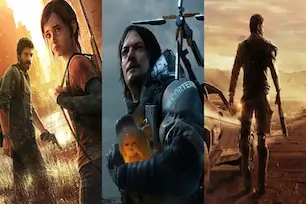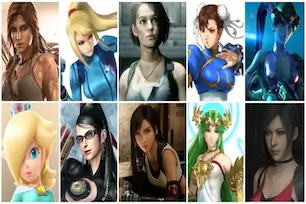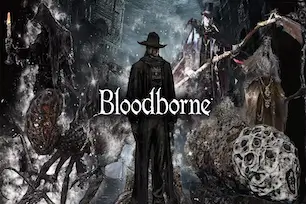Video games and storytelling are changing. They now include deep stories that explore moral issues and the choices players make.
At the heart of this change are karma morality systems. These systems let players make choices. These choices can lead to surprising outcomes and help characters grow.
Moral Choices in Gaming: Do You Like Playing Video Games with Karma Systems?
- Karma morality systems give players the power to shape stories through meaningful choices that impact character development and world outcomes.
- Games like Mass Effect, The Last of Us, and Catherine challenge players to reflect on ethics, responsibility, and consequence.
- Anti-heroes such as Max Payne, Kratos, and Niko Bellic show how morally complex characters can create emotional depth and player empathy.
- Modern gaming narratives often go beyond good vs. evil, exploring a moral spectrum where actions have gray consequences.
- Replayability is enhanced when games offer divergent paths tied to player morality, encouraging multiple playthroughs and deeper engagement.
- As storytelling evolves, morality systems continue to push the boundaries of emotional and philosophical interaction in video games.
In this discussion, we will look at how these systems influence player choices, affect stories, and make us think about moral decisions in video games. The games I will talk about are mostly from the PlayStation 2 and PlayStation 3. These games made me think deeply about player choices and morality in video games.
The Table of Contents
A Time of Simplicity: Early Game Narratives
In the early days of gaming, narrative depth was often a secondary concern. Plot structures were typically straightforward and predictable; players operated in a black-and-white moral universe. Titles like Super Mario Bros and Doom epitomized this approach, where players were cast as the good guys (often male protagonists) embarking on a mission to defeat malevolent foes.
Titles like Super Mario Bros and Doom epitomized this approach, where players were cast as the good guys (often male protagonists) embarking on a mission to defeat malevolent foes.
In these situations, players usually do not think about their role or the rightness of their actions. For example, no one plays Pokémon and wonders if they could be the bad guy in the story.
The Rise of Moral Ambiguity: Anti-Heroes Enter the Scene
As games evolved, they started to tell more complex stories. Players encountered characters who were not just traditional heroes, but also anti-heroes and morally mixed figures. This change showed larger social and cultural trends. It also reflected a deeper understanding of right and wrong in today’s storytelling.
Max Payne: Pain-Driven Justice
Take Max Payne, for instance. A quintessential anti-hero, Max embodies the gritty realism of classic noir storytelling. He used to be a police officer but has now become a vigilante.
He is motivated by a desire for revenge against the people who harmed his family. Max is not afraid to take part in questionable actions as he moves through the darker parts of his world.
His thoughts often show deep feelings of loss, guilt, and sadness. This makes him a complex character whose reasons for acting connect with players emotionally. Max's journey is not just about revenge; it is also about dealing with the darkness inside him. This theme reflects the complicated nature of being human.
Kratos: From God Slayer to Father
Characters like Max Payne and Kratos defy the typical hero archetype, illustrating how anti- heroes challenge stereotypes in games and add layers of complexity to storytelling.. At first, Kratos is shown as a fierce warrior who seeks revenge. He is motivated by a strong desire to get back at the gods who have wronged him.
heroes challenge stereotypes in games and add layers of complexity to storytelling.. At first, Kratos is shown as a fierce warrior who seeks revenge. He is motivated by a strong desire to get back at the gods who have wronged him.
As the series goes on, players see him change from a simple tough guy into a character with real emotions and moral struggles.
Beneath Kratos's violent exterior lies a father struggling to protect his son, Atreus, while reconciling with his past sins. The mix of anger and fatherly love makes his character more complex. It also prompts players to think about the two sides of his actions.
Kratos's change shows how anti-heroes can create deep stories. These narratives explore ideas of redemption, sacrifice, and the serious effects of our choices.
Niko Bellic: Crime and Survival in Liberty City
Niko Bellic in Grand Theft Auto IV presents an even more intricate moral challenge. His story has themes of revenge, but his reasons come from a strong need to survive in a harsh and unfair society. Niko is an immigrant from Eastern Europe. He wants to leave his difficult past behind and find the "American Dream."
society. Niko is an immigrant from Eastern Europe. He wants to leave his difficult past behind and find the "American Dream."
As he becomes part of the crime scene in Liberty City, players must think about the moral issues related to his violent lifestyle. Unlike typical hero stories, Niko's choices often come from feelings of desperation and the need to fit in. This makes us think about what really defines a hero or a villain in a flawed system.
Niko's journey shows that many people face tough choices due to their situation, not because they are naturally bad. His complicated character makes players think about the results of their decisions, which adds to the emotional connection with the story.
Rockstar Games and Moral Shades of Gray
Many recent games from Rockstar Games have featured protagonists with complex morals. For example, in Bully, players control Jimmy Hopkins, a tricky teenager who deals with school challenges and social issues.
Jimmy's actions show a close look at teenage behavior, peer pressure, and rebellion. Players may find themselves empathizing with his struggles, allowing for a deeper understanding of the reasons behind his actions.
Red Dead Redemption 2 shows this growth in character design with its main character, Arthur Morgan. As an outlaw struggling with loyalty to his gang while grappling with moral dilemmas, Arthur serves as a lens through which players can explore the consequences of their choices.
Arthur serves as a lens through which players can explore the consequences of their choices.
His wish for redemption stands in contrast to his life of crime. This creates a thoughtful look at ethics and morality in a harsh world. During his journey, Arthur must face how his choices affect the people he loves. This highlights the difficulties of being an anti-hero.
As players move through the complex stories of anti-heroes like Max Payne and Kratos, they are not just watching. Their choices play an important role in shaping the story and how the characters grow.
This feature comes from using karma morality systems in modern games. These systems let players choose different paths that connect character growth with the results of their choices.
Understanding Karma Morality Systems in Games
Karma systems are important in today’s games. They give players different choices that connect how characters grow and how the story unfolds.
These systems let players make choices that affect the story and the characters' morals. This makes the gameplay more than just about mechanics. It transforms the experience into a journey centered on ethics and personal values.
How These Systems Work: Paragon vs. Renegade
At their core, karma systems function by providing players with choices that have tangible consequences in the game world. Games like the Mass Effect series, Infamous, Fallout, and Shin Megami Tensei change their stories based on the choices players make.
This design allows for different paths and outcomes in the game. Each choice can lead to different outcomes, shaping not only the character's journey but also the world around them.
In Mass Effect, players can choose the "Paragon" path by making good choices or the "Renegade" path by using tougher methods. This duality allows players to change their experiences based on their beliefs or desire for power.
The choices you make with your companions also change your relationships with them. This adds more depth to the story and makes your decisions feel important.
Player Agency: Why Your Decisions Matter
Karma systems attract players because they give them a feeling of control and responsibility for what they do in the game. This allows players to connect more with the story. Their choices affect the game world, making the experience feel unique to them.
For many, the opportunity to explore different moral outcomes can be a significant draw, encouraging replayability. Players can go back to the game and make different choices. This lets them see all the possible endings and how those choices change the story and characters.
However, the nature of these systems isn't without its pitfalls. Players enjoy having a say in the story, but they often focus too much on getting certain results that match the karma points. This fixation may lead players to prioritize optimizing their karma over contemplating the moral implications behind their choices
Karma morality systems allow players to influence their character's journey and the game world based on their choices. The true impact of these experiences is felt when players connect with the decisions on a personal level.
When we examine how players feel about their choices, it becomes obvious that gameplay and story work together to create a more engaging experience.
Emotional Engagement Through Moral Choice
Players interact with karma systems in different ways. This can greatly affect how they feel about the story. Games that incorporate well-developed morality systems allow players to feel connected to the outcomes of their choices. The game Catherine has different endings that depend on the player's choices about morals.
Catherine offers different endings, including "True," "Good," "Bad," and a "Neutral" option with different conclusions. This makes player choices more complex. Every choice a player makes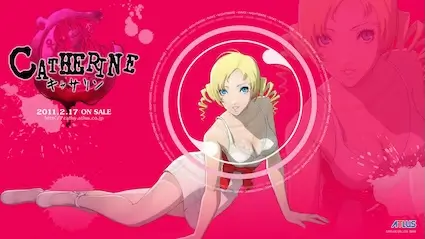 affects the character's relationships and final outcome. This adds to the emotional connection to the game.
affects the character's relationships and final outcome. This adds to the emotional connection to the game.
- Catherine focuses on moral choices that make players think about their values and what is important to them. These choices affect the story and the relationships between characters.
- The game effectively frames its themes of love, fidelity, and personal responsibility in a manner that resonates deeply, prompting players to grapple with their choices in real time.
- This change from regular karma systems helps keep the game interesting and encourages players to see how their choices affect the game in different playthroughs.
In contrast, it is becoming less common to find games where players play as villains with no good qualities at all. Most popular games aim to show a moral point of view. They let players connect with heroes who have some good qualities, even if their actions are not always perfect.
For example, in many titles featuring historical evildoers, such as those involving Nazis, players are almost universally expected to take the role of a good character fighting against evil. This trend shows a wish in society to establish clear moral boundaries. It creates a sense of heroism that players can relate to and support.
Morality on a Spectrum: Beyond Black and White
In games where players might do things that are not morally right, the stories usually explain why these actions happen. In Manhunt, for instance, players assume the role of a killer forced into a dire situation, driven by a survival instinct that offers a semblance of reason for their violent actions.
This approach makes players think about the moral choices in the game. It makes them think about what situations could cause a character to act badly.
Complex characters can create strong feelings in players. This helps them relate to the characters, even if those characters have flaws. Games with morally ambiguous heroes encourage players to think more deeply about real-life ethical issues. They show that people are not just good or bad but often fall somewhere in between, in a mix of different moral shades.
Redefining Heroes Through Relationship and Sacrifice
Players feel more connected when they have a personal interest in the story as it unfolds. As players face tough choices, the results of their decisions can create strong feelings that stick with them for a long time.
Games like The Last of Us and The Walking Dead show how player choices can change everything. Players make important decisions that affect the lives of characters they care about throughout the game.
everything. Players make important decisions that affect the lives of characters they care about throughout the game.
In The Last of Us, Joel's morally complex choices build a strong bond with Ellie. Players make decisions that affect how they survive and their relationship. Each choice carries weight, prompting players to reflect on the moral complexity of their actions.
When a game puts players in difficult moral choices, it strengthens their emotional bond with the game. This shows how game stories can reflect the difficult choices people make in real life.
The Weight of Player Choice
In the end, how players make choices and experience emotions in karma systems shows the complicated link between morals and decisions. Players do not just watch the story unfold; they take part in it. Their choices affect the world around them. This creates a strong connection to both the characters and the story's results.
Engagement in these narratives is influenced by how players navigate the morality systems at their disposal, shaped by their unique game perspectives. Some players might choose to be good, while others may prefer to be bad to see what happens when they play a villain.
In each situation, players face the results of their choices. This allows players to think about different ethical issues and makes the gaming experience more interesting.
Did you know that you can sell your old video games directly on our website? With a simple and easy-to-use platform, you can check out the trade in value of your vintage titles and see how much cash they can fetch you!
easy-to-use platform, you can check out the trade in value of your vintage titles and see how much cash they can fetch you!
Whether you're looking to declutter your collection or simply make some extra cash, selling your used video games has never been easier.
Join our community of gamers who are taking advantage of this opportunity to give old games a new life while earning money at the same time!
As video games change, karma systems that promote important choices will probably be key in shaping future stories. These systems will help players think about their morals and values.
As they move through detailed virtual worlds, they will encounter complex characters and stories. This allows players to explore morality in gaming.
Exploring Morality in Gaming Narratives
By exploring complex themes and character relationships, games like Persona illustrate why is Persona so good, as it challenges players to navigate moral choices that have far- reaching implications in the narrative.These stories show a different kind of anti-hero. In these games, players often help characters with actions and goals that may be troubling.
reaching implications in the narrative.These stories show a different kind of anti-hero. In these games, players often help characters with actions and goals that may be troubling.
The growing diversity in moral storytelling helps video games by creating surprising stories. These unpredictable narratives keep players interested and question traditional views of heroism.
The Complexity of Anti-Heroes
In The Last of Us, players are introduced to Joel, a character shaped by grief and loss, who resorts to morally questionable actions to protect Ellie, a young girl who represents the hope of humanity’s future. Joel's journey is filled with moral dilemmas as he deals with his past while trying to survive in a post-apocalyptic world.
This complexity makes players think about whether the outcome is worth the actions taken. It also challenges their ideas of what a hero really is. Instead of showing a clear battle between good and evil, the story encourages players to think about the moral choices they face. These choices can have important effects.
In Shadow of the Colossus, players take on the role of Wander. He wants to bring a loved one back to life by defeating giant creatures called colossi. Each colossus has its own purpose and story. As Wander's quest unfolds, players are confronted with the moral ramifications of his actions.
Each colossus is not truly evil. They represent different aspects of nature. This means that Wander's journey may be a sad mistake.
The game encourages players to think about sacrifice and the cost of ambition. This adds to the emotional experience of playing.
The Dilemma of Morality in Action
In Enslaved: Odyssey to the West, players experience the story of Monkey, a reluctant hero who must team up with Trip, a smart and resourceful companion. Together, they navigate a dystopian world filled with danger and moral quandaries.
Their uneasy alliance evolves into a powerful narrative about trust, survival, and selflessness. As IGN’s review notes, the game “excels at storytelling and character development,” offering players a unique emotional journey that challenges traditional hero narratives.
The game challenges the traditional hero narrative by framing Monkey as a reluctant hero whose initial motivations are rooted in self-preservation rather than altruism.
As he becomes more intertwined with Trip's struggles, the player witnesses an evolution in his character.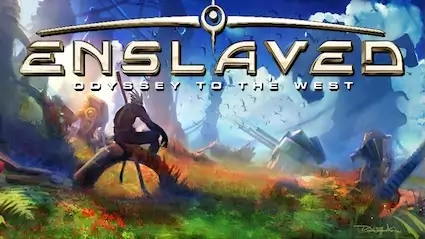
The way relationships work makes players think about the effects of their choices.They have to balance what they want for themselves with what is best for everyone’s survival.
This moral complexity keeps players interested. It helps them think deeply about human experiences. In each of these games, players face tough decisions that make them think about their views on right and wrong, loyalty, and sacrifice.
Unpredictability and Suspense in Character Arcs
The way character arcs can change, whether they turn out good, evil, or somewhere in between, creates suspense and interest in the game. Players face the results of their choices, which creates tension as they decide what happens to characters they care about.
High-stakes moments, like choosing to spare or eliminate an enemy, make players think about what their decisions mean. For instance, in titles that feature companion characters, players may face situations where the outcome of their decisions could endanger their allies, thereby intensifying the emotional stakes of the gameplay.
This variety of choices lets players face more realistic challenges, highlighting the complexity of human nature.
Emotional Engagement and Player Reflection
The mix of deep stories, tough choices, and character growth creates strong emotions that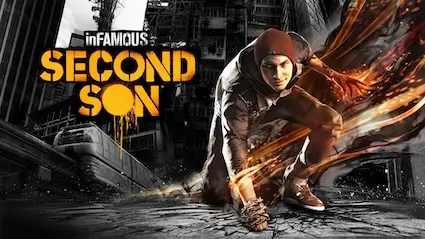 connect with players. These stories make players think about their values and ethics. They ask questions about what drives them and the impact of their choices.
connect with players. These stories make players think about their values and ethics. They ask questions about what drives them and the impact of their choices.
The mix of gameplay and storytelling is not just for fun. It also helps players explore themselves and think about moral issues.
By adding moral choices to the gameplay, developers make sure players are not just watching but are actually involved in creating the story. This design choice enhances the gaming experience. It lets players reflect on their values while making tough decisions in the game. Innovations in Karma Systems
Consider Infamous: Second Son, which introduced fresh elements to the traditional karma system. In the earlier games, Infamous and Infamous 2, making good choices led to praise and help from the people. On the other hand, making evil choices caused hostility and aggression from them.
In contrast, Second Son changes this idea. Here, doing good puts the hero against the government. This leads people to see the hero as a danger.
This new method separates morality from public recognition. It helps players think about how their characters' actions affect society.
After examining how player choices shape emotional ties to the story, we should consider the broader effects of morality in these gaming experiences.
Games like The Last of Us, Shadow of the Colossus, and Enslaved: Odyssey to the West not only connect with players' feelings but also make them think about the moral choices they face. This adds depth to the gaming experience.
Conclusion: Morality as the Heart of Modern Gaming
Karma morality systems are now an important part of many video game stories. They encourage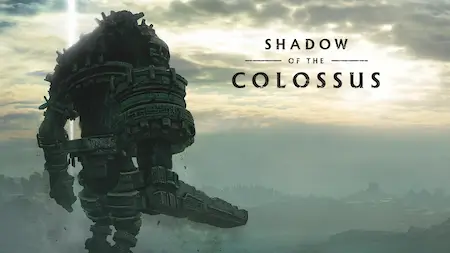 players to make ethical choices and think about their own morals.
players to make ethical choices and think about their own morals.
As stories become more complex and characters show both good and bad qualities, players enjoy a variety of gaming experiences. These games encourage them to think about the complexities of human nature.
When you play games like Mass Effect, Grand Theft Auto IV, or The Last of Us, you encounter important choices. These moral decisions make players feel more connected to the stories and characters in the games.
Games are more than just fun. They challenge players to think about their choices and the stories that develop from them.
As the gaming industry grows, we can imagine how future games will change. They may make us think more about the morality of the characters we play and the decisions we make.
Frequently Asked Questions About Morality in Video Games
What was the first video game with a morality system?
- The first widely recognized game with a morality system was Ultima IV: Quest of the Avatar, released in 1985.
What is a moral system?
- A moral system in gaming allows players to make choices that impact the story or character based on ethical or moral values.
What are five moral systems?
- Five common moral systems are utilitarianism, deontology, virtue ethics, divine command, and relativism.
What games have morality system?
- Games like Mass Effect, Infamous, The Witcher 3, Fable, and Red Dead Redemption 2 feature morality systems.
Can video games teach morals?
- Yes, many video games encourage moral reflection by letting players explore the consequences of their actions.
What is Karma in games?
- Karma in games refers to a system that tracks good or bad actions and alters gameplay or story outcomes accordingly.




